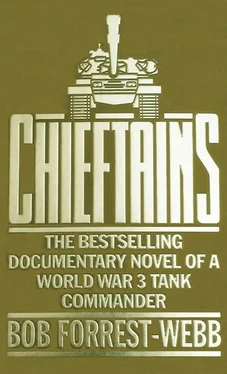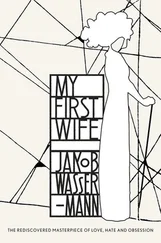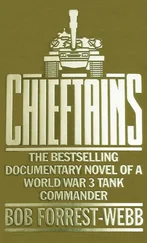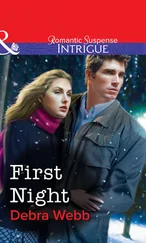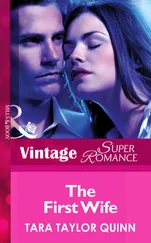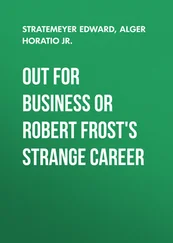There was a lot of activity. The radio vehicle was operating, a dim glow showing though its open doors. A group of cooks were working in a halo of mist around a hid-kitchen beneath the trees, and there was a small queue of infantrymen waiting nearby. Camouflage was being improved over several of the BMPs, as though the men intended to remain in the present position for some time.
To his left, beyond the BTR command vehicle, was a slit trench. He noticed it only because one of the guards paused and spoke to the men inside, before continuing his patrol. Studley crawled towards it.
He was only a few meters from the trench when one of the men it contained stood, stretched himself and then climbed out. He said a few words to a man below him, laughed, then walked away across the clearing. Studley watched him go. The man joined the end of the queue waiting by the field-kitchen. Studley wriggled his way closer to the trench. He could see the helmet of another guard; there might be a third man stretched out beside him, but it was a chance Studley realized he would have to take. He had already decided that if something went wrong, then he would fight with his bare hands until they killed him; they would shoot him anyway if he were captured again. And this time there would be no carelessness.
He slid closer, keeping low in the shadows of the thin scrub. The man was an arm’s length away now, and if he looked over his left shoulder would be staring into Studley’s face. Studley pushed himself silently to his knees. The Russian infantryman was sitting on a box behind a machine gun. His head was cupped in his hands, the strap of his helmet was beneath his chin.
Studley took a deep cautious breath, paused for a fraction of a second gathering his strength, then grabbed at the front of the helmet with both hands, jerking it fiercely backwards. The man’s legs kicked away from him and his hands clawed at Studley’s arms. As with the advice he had been given about escaping, Studley knew there would be no second chance. A combination of anger and determination made him stronger. He ignored the pain of his injuries, and swung himself around until he could get his knees against the man’s back, then with as much power as he could find he wrenched the head and helmet sideways.
Bone snapped. For a moment Studley thought the strap of the helmet had broken. He changed his grip quickly to gain more purchase on the man’s head; it moved strangely, loosely in his hands. The infantryman struggled weakly for a few more seconds as his life died away, and then was still.
Studley felt exhausted; throbbing agony had returned to his wounds. His clothing was soaked with sweat. He wiped it from his eyes with a sleeve, and felt it stinging in the cuts of his lips and face. Every movement of the past few seconds had sounded terrifyingly loud and he expected at any moment to hear shots and feel the thud of bullets ripping into his body.
He glanced towards the field-kitchen, the queue had lengthened, the cooks were not hurrying their work. Men stood chatting while they waited, swinging their arms across their bodies or stamping their feet to keep their circulation moving in the night air. They were far enough away from the front tines to still feel secure; in probability, they had not yet seen any action, he thought. Men who had faced shells and bullets did not relax their vigilance so easily.
He quickly examined the machine gun: a 7.62mm PK on a bipod, simple to operate unless it jammed. If it did so, then he would discard it instantly; there was no time to study its mechanism.
He moved the body of the dead guard. The box on which the infantryman had been seated held additional magazines of bullets, and to Studley’s greater satisfaction contained ten RGD-5 grenades. Beneath the body he found a loaded AKM rifle.
The slit trench overlooked a long valley sweeping down towards the west. Studley debated quickly on the choice of weapons; he would not be able to carry them all. He pushed half a dozen of the grenades into his pockets and then dragged the machine gun with him over the brow of the hill, where he was able to move around the perimeter of the camp out of sight of the guards.
He was within twenty meters of the radio vehicle when there was a shout from across the clearing in the direction of the slit trench. Studley jerked the pin from a grenade then hurriedly tossed it underhand through the open doors, scurrying back into the undergrowth like a disabled crab as it exploded inside the armoured vehicle, belching flame and smoke through the buckled and split metalwork. The tall radio mast collapsed sideways into the trees. He threw another with all his strength towards a running group of men near the centre of the clearing, and several crumpled bodies were hurled away by its blast.
The camp was panicking, the men unable to identify the whereabouts or nature of the attack, mistaking the grenades for mortar bombs. Studley limped towards the nearest BMP. Its crew were scrambling inside, and the troop hatches were fully open. Studley’s grenade bounced off the rear of the turret and exploded within the hull. A sheet of fire roared upwards as the fuel tanks ignited. He caught a glimpse of the driver, crawling away from the hull, his overalls alight.
There were no more close targets for his grenades. Studley dropped behind the machine gun. He worked the first round into the breech with the bolt, and mentally crossed his fingers.
On the far side of the clearing were a group of men Huddled around the BTR command post. It moved, its driver reversing it towards the woods. The men moved with it, using its hull as protective cover. Studley squeezed the trigger and felt the satisfying shudder as the gun reacted. He kept the burst short; it was unlikely he would have more than two hundred rounds in the magazine, and this gas-operated weapon would get through more than six hundred and fifty a minute. As the bullets struck, the BTR began smoking. He gave it a second burst, low alongside the driving compartment. The smoke became flame which billowed and swelled like the fireball of a miniature atomic bomb. He raked a longer burst through running figures then scrambled deeper into the undergrowth, moving further to his left, dragging the machine gun.
One of the BMPs was thundering blindly towards him, crashing through the light woods, its tracks slapping and squealing. He threw himself aside and the vehicle road past. There were shots crackling viciously in the trees… unaimed, indiscriminate, shouted orders, more explosions. Vehicles were revving, moving. A wounded man was screaming.
‘Bastards… you bastards,’ yelled Studley. He knew he was invincible; better than invincible, he had become death itself. He grabbed the machine gun under his arms and staggered into the open, firing it from his hip at a BMP that was dragging itself out of its camouflage, trailing the netting. Its rocket exploded in the launcher, ripping the vehicle’s turret off backwards as neatly as if it had been removed by a cutting charge. Fires had brought eerie daylight to the clearing, the contorting shadows and smoke adding to the stygian chaos. One of the BMPs exploded for a second the as its ammunition overheated, scattering flaming debris high into the air. A UAZ Jeep bounced out of the woods and spun in the open ground. Studley caught it with his final burst, firing until his gun stopped. The Jeep accelerated for a few meters, hit the wreckage of one of the BMPs and rolled on to its side.
Studley dropped the machine gun and pulled out his two remaining grenades. He removed the pin from each and stood waiting defiantly. The only remaining undestroyed target he could see was the field-kitchen.
‘I’m here, you bastards…’ The reply was the digestive sound of the fires, the sharp crack of small-arms ammunition as it exploded amongst the burning wreckage. The madness left Studley. He said, quietly, ‘I’m here.’ There was a sense of anti-climax, unrealness.
Читать дальше
